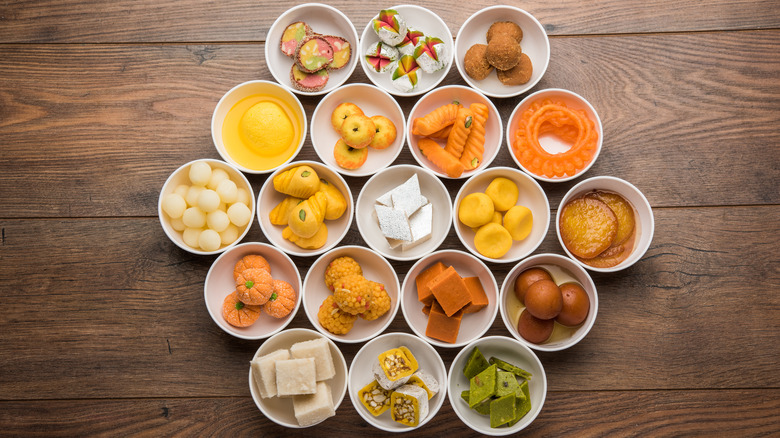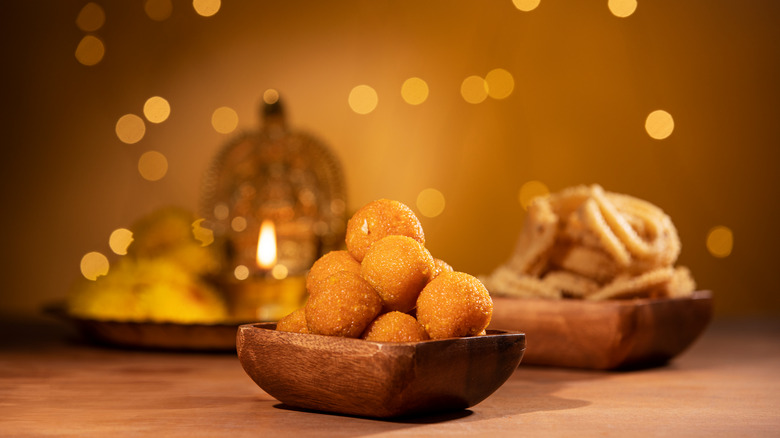The Real Reason Sweets Are Traditionally Eaten During Diwali
Let's be real here: For food lovers, pretty much the best part of any holiday is the opportunity to indulge in that celebration's typical treats. From Thanksgiving turkey to Christmas ham to Hanukkah latkes, we love loading up on the festive dishes that define these special occasions. As much as we love decorating a Christmas tree, going on Easter egg hunts, and watching the ball drop on New Year's Eve, we get way more amped about the food-related activities that our favorite holidays offer.
And since we can admit to having quite the sweet tooth, one holiday we're always game to participate in is Diwali. The "festival of lights" that is India's largest national holiday, Diwali is celebrated by Hindus, Jains, and Sikhs alike. Typically observed by the lighting of little clay lamps as well as an abundance of fireworks, the enjoyment of a huge variety of sweet, colorful Indian desserts is also an integral part of the five-day celebration of Diwali (via National Geographic Kids). So why all the sweets?
Sweets celebrate the triumph of good over evil
According to National Geographic Kids, Diwali is India's most widely celebrated holiday, marked by five days of festivities that include fireworks, the creation of colorful sand art called rangoli, and lavish feasting with family and friends. Diwali means different things to the country's various populations. Originally a Hindu festival celebrating Lord Krishna's defeat of the demon Narakasura, over the centuries it has come to be celebrated by Jains (who commemorate the spiritual awakening of Lord Mahavira) as well as Sikhs (who honor the day that Guru Hargobind Ji was freed from imprisonment). But no matter who is observing Diwali, the holiday celebrates the triumph of good over evil.
And what better way to celebrate such a triumph than with sweets? According to Republic World, sharing and eating sweets is an integral part of Diwali. Ten days prior to the start of the holiday, in late October or early November depending on the year, families start to prepare a whole host of traditional sweets ranging from laddoo, flavored balls of flour, sugar, and ghee (via Culture Trip), to gulab jamun, semolina doughnuts soaked in spiced syrup (via Serious Eats). These typical sweets, called mithai, are an important way to share the joy of the holiday with family and friends, according to Republic World.
Diwali starts on November 4 this year (via India Today) — and our mouths are already starting to water in anticipation of all that sugar.

